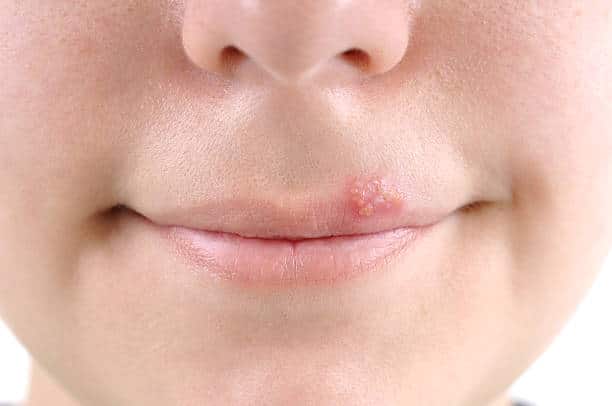Are you concerned about spreading cold sores through kissing? Your apprehension is valid; cold sores are not just painful but highly contagious. Understanding the intricacies of the herpes simplex virus (HSV), which causes cold sores, is crucial for ensuring you don’t inadvertently infect others. Let’s dive deep into when it’s safe to kiss after a cold sore and what you can do to minimize the risks.
Table Of Contents
−- Understanding the Cold Sore Virus: A Primer
- Stages of a Cold Sore: Know What You’re Up Against
- Incubation Period: An Important Time Frame
- Spotting the Symptoms: Early Detection Matters
- Prevention: Your Best Defense Against Spreading HSV
- Managing Symptoms: Practical Steps for Comfort
- Risk Reduction: Take Control of Your Health
- When to Resume Normal Activities: Safety First
- Stress and Cold Sores: Mind Over Matter
- Final Word: When Is It Safe to Kiss Post Cold Sore?
Understanding the Cold Sore Virus: A Primer
Cold sores are the manifestation of the herpes simplex virus (HSV). This highly contagious virus is easily transmitted through direct contact with an infected person’s saliva or skin. But it doesn’t stop there. The virus can also be passed indirectly, making its way to you through shared items like cups, utensils, and towels. The tricky part about HSV is that it can hibernate in your body for a long time, reactivating unexpectedly. Therefore, learning about how HSV spreads, its symptoms, and its management is essential for responsible behavior.

Stages of a Cold Sore: Know What You’re Up Against
The life of a cold sore is a journey through five distinct stages: prodrome, tingling, blister formation, scabbing, and finally, healing. During the prodrome stage, you’ll likely feel a subtle tingling sensation that may persist from a few hours up to two days. After that, blisters form, either singly or in clusters, marking the blister formation stage. These blisters then evolve into yellowish scabs during the scabbing stage. Healing occurs when these scabs naturally fall off, signaling the end of this rather uncomfortable episode.
Incubation Period: An Important Time Frame
The incubation period is the duration between initial exposure to HSV and the appearance of the first cold sore symptoms. Typically, it spans two to seven days. During this critical period, the virus multiplies and invades nearby cells, finally manifesting as a visible cold sore. Being aware of this time frame is crucial for preventing the virus’s spread, as you’re most infectious during this period.
Spotting the Symptoms: Early Detection Matters
Recognizing cold sore symptoms early can help you take quick action. Usually, cold sores commence with a tingling, itching, or burning sensation around your mouth. Then a cluster of small, fluid-filled blisters erupts. These blisters eventually rupture and morph into shallow ulcers or scabs. Accompanying symptoms may include localized pain, itchiness, inflammation, and swelling. Immediate medical consultation is advisable for accurate diagnosis and effective treatment.
Prevention: Your Best Defense Against Spreading HSV
Mitigating the spread of HSV is a communal responsibility. Key preventive measures include abstaining from kissing and avoiding shared items like towels and lip balm when you have a cold sore. Good hand hygiene is a must, as is refraining from touching the sore. And don’t forget to apply sunscreen to areas where a cold sore has recently healed; UV damage can make the area more vulnerable.
Managing Symptoms: Practical Steps for Comfort
When you’re grappling with a cold sore, managing your symptoms effectively can make the experience less daunting. Keeping the affected area clean and dry is imperative. Moist environments can worsen the sore. Cold compresses or ointments like Abreva can alleviate pain and reduce inflammation. Touching or picking at the sore is a strict no-no, as it can lead to further complications or the spread of the virus.
Risk Reduction: Take Control of Your Health
Beyond prevention, you can adopt specific practices to lower the risk of HSV transmission. Personal hygiene remains at the forefront, coupled with avoiding intimate contact until the cold sore is fully healed. Stress management, too, plays a role in controlling outbreaks. Techniques such as relaxation and mindfulness can help alleviate stress, which is a known trigger for cold sores.
When to Resume Normal Activities: Safety First
You’re generally safe to resume kissing and other intimate activities once the cold sore has completely healed. Yet, bear in mind that HSV can linger in a dormant state and still be contagious even when no symptoms are present. Therefore, it’s prudent to wait until the prodromal and vesicular stages have passed, and the scabs have fully healed, to reduce the risk of transmission.
Stress and Cold Sores: Mind Over Matter
Managing the psychological toll of having a cold sore is vital. Stress and anxiety can exacerbate your symptoms and even trigger new outbreaks. Relaxation techniques like deep breathing exercises and progressive muscle relaxation can be incredibly helpful. Additionally, professional healthcare consultation can offer valuable coping strategies.
Final Word: When Is It Safe to Kiss Post Cold Sore?
Once the cold sore is a thing of the past, it’s usually safe to engage in intimate activities like kissing. However, it’s recommended to wait at least three to four days after the scab has disappeared to minimize the risk of transmission. Good hygiene practices must continue, and it’s always best to keep your partner informed to protect them as well.
By understanding the nuances of cold sores—from their root cause to their final healing stage—you equip yourself with the knowledge to handle this common yet bothersome condition responsibly.

Editorial Staff
Our writers, editors, content managers, and SEO specialist. We all take part in crafting amazing articles. We spend hours ensuring that each article is based on facts, researched, and thorough. You'll never want to click the back button to look for more answers other than here!
